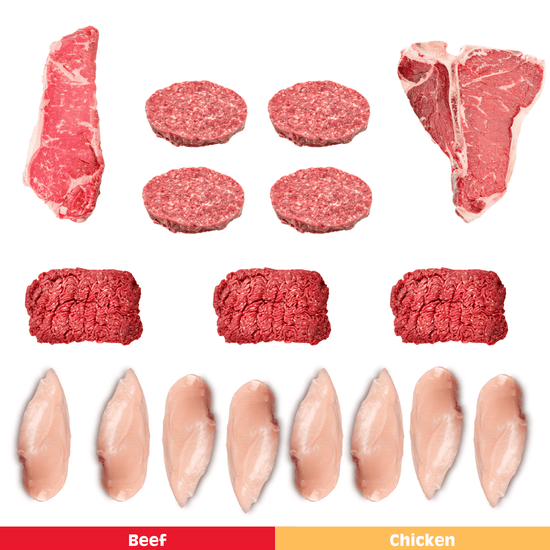In the pursuit of a sustainable food system, lab-grown meat has often been presented as a potential solution. However, recent research challenges the notion that lab-grown meat is an environmentally friendly alternative to traditional beef. In fact, the findings indicate that lab-grown meat may have a significantly higher carbon footprint than real beef. In this article, we delve into the research and highlight why consuming real beef is the unequivocal choice for those seeking a sustainable future.
-
Higher Carbon Footprint: The research reveals that lab-grown meat, produced through current and near-term methods, emits substantially more carbon dioxide per kilogram than regular beef. In terms of environmental impact, lab-grown meat falls short, contradicting claims of being a greener option. This raises concerns about the true sustainability of lab-grown meat and strengthens the case for choosing real beef.
-
Technological Limitations: While some suggest that future advancements might address the environmental concerns surrounding lab-grown meat, the reality is that significant progress is needed. The reliance on pharmaceutical-grade ingredients and the energy-intensive process of purification contribute to its high carbon footprint. The feasibility of transitioning to more sustainable practices remains uncertain, making the case for real beef even stronger.
-
Real Beef: A Sustainable Choice: In contrast to lab-grown meat, real beef, when produced using regenerative agriculture practices, offers a truly sustainable option. Grazing livestock can improve soil health, enhance biodiversity, and sequester carbon. Utilizing marginal lands for grazing minimizes the need for land conversion and optimizes resource utilization. Real beef provides essential nutrients, supports local economies, and upholds cultural traditions, making it an indispensable source of food security and community resilience.
-
Previous Studies Reinforce the Argument: The recent research aligns with previous studies from the University of Oxford, which also highlight the drawbacks of lab-grown meat. The energy-intensive nature of lab operations and the long-lasting effects of carbon dioxide emissions raise concerns about its environmental impact. These findings further emphasize the superiority of real beef, produced sustainably, as the preferable choice for those committed to sustainability.
As we strive to build a sustainable future, it is crucial to reevaluate the claims surrounding lab-grown meat and recognize the clear advantages of consuming real beef. The research unequivocally demonstrates that lab-grown meat falls short in terms of sustainability, with a higher carbon footprint compared to traditional beef. Real beef, produced through regenerative agriculture, offers a proven, environmentally friendly option that supports soil health, local economies, and cultural heritage. It is time to make the conscious choice to embrace real beef and contribute to a more sustainable world.









